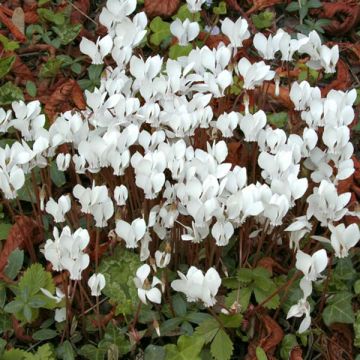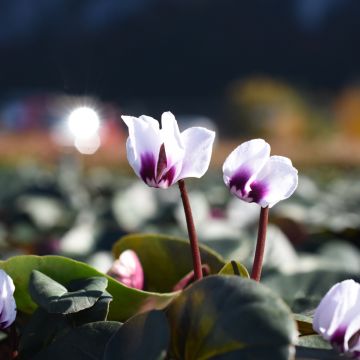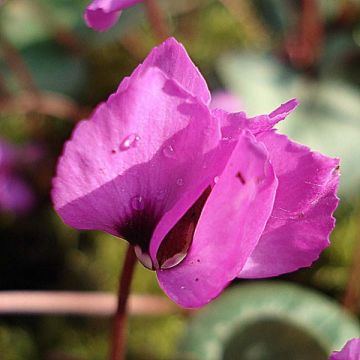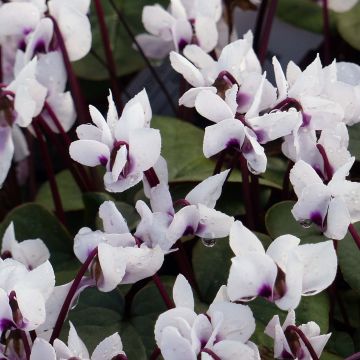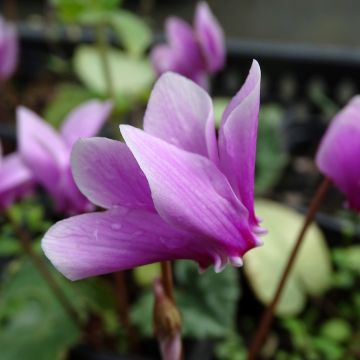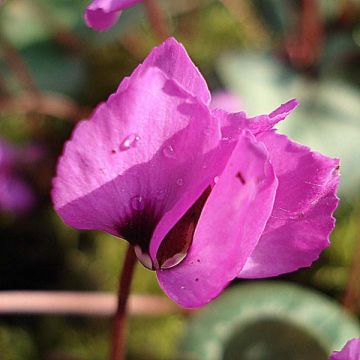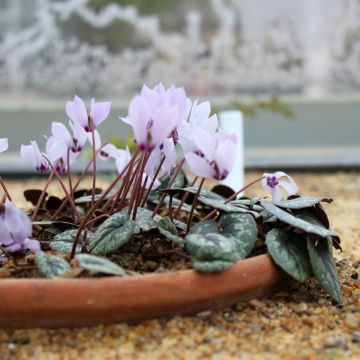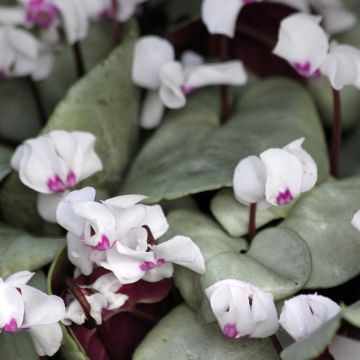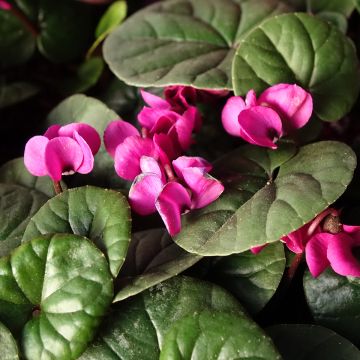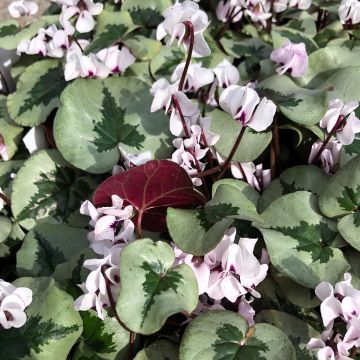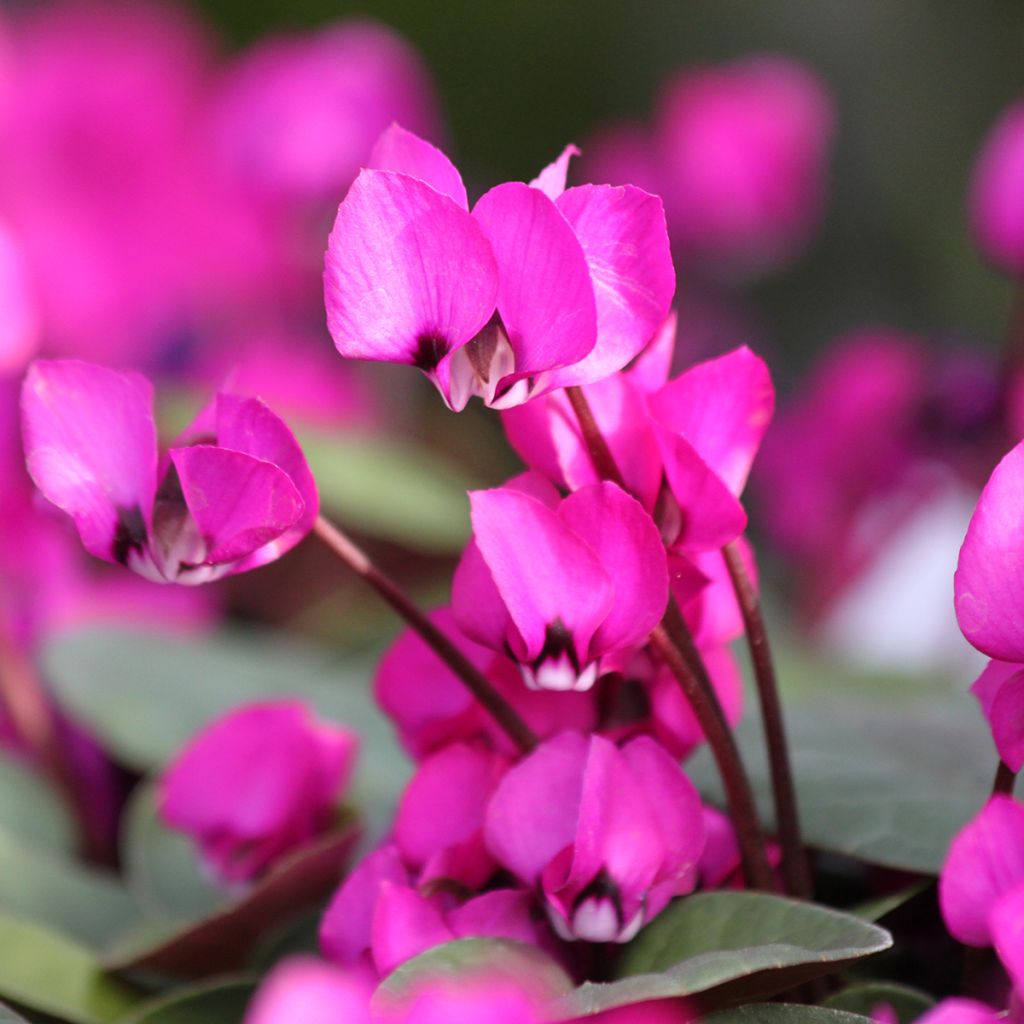

Fuschia-flowered Cyclamen coum - Eastern sowbread
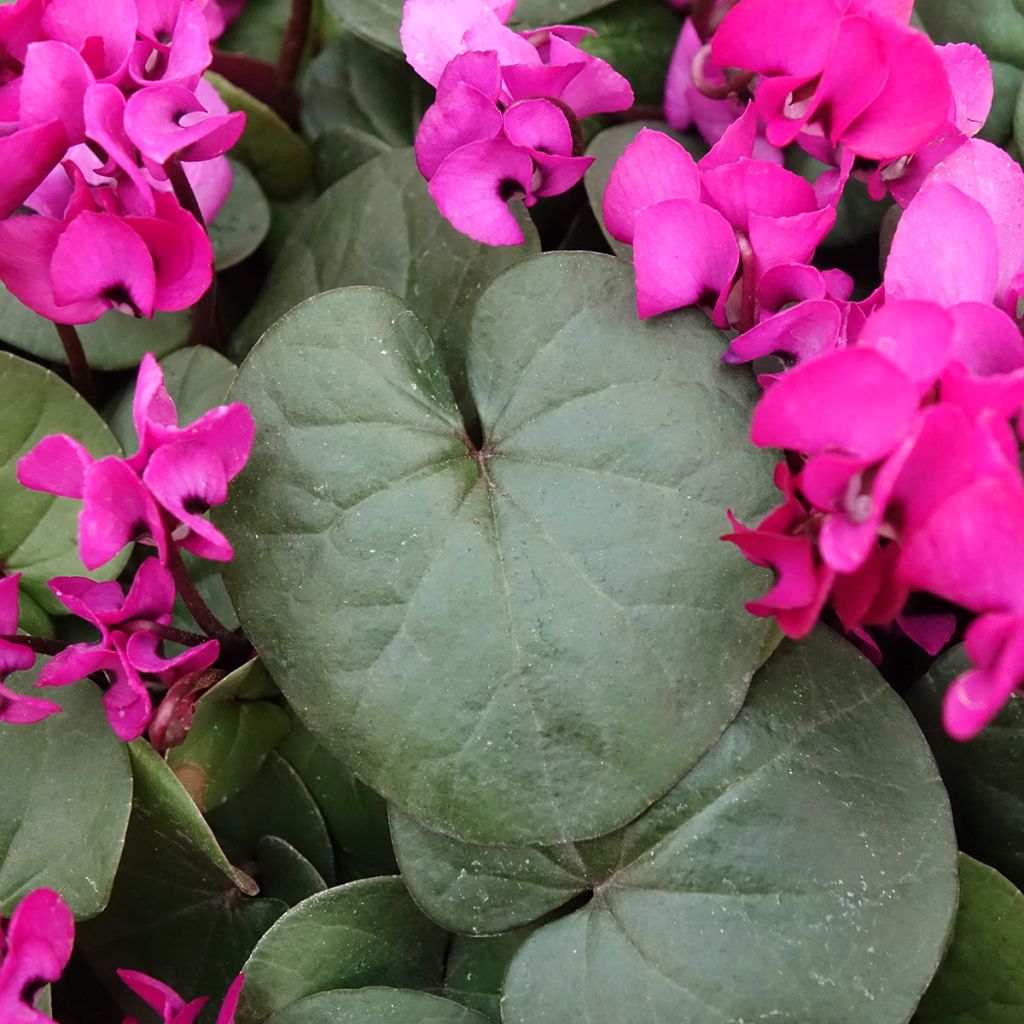

Fuschia-flowered Cyclamen coum - Eastern sowbread
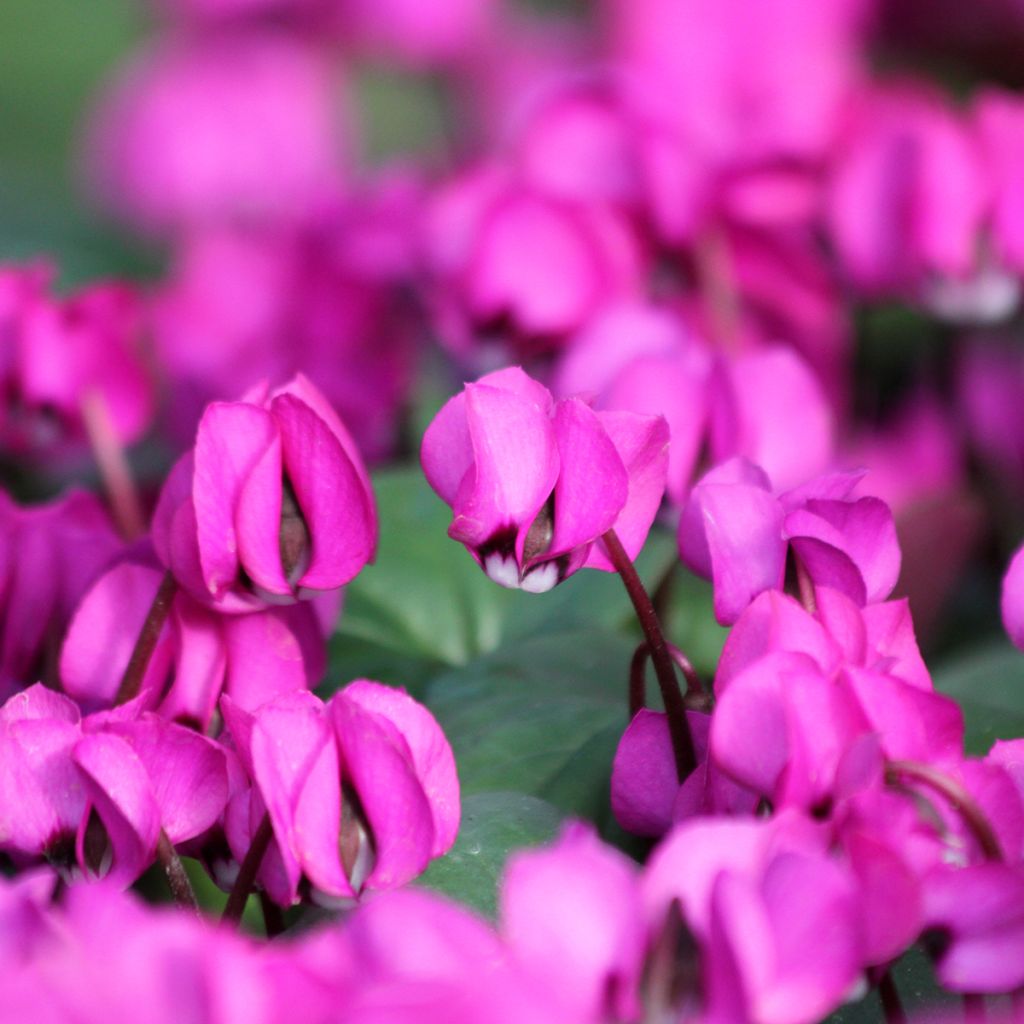

Fuschia-flowered Cyclamen coum - Eastern sowbread
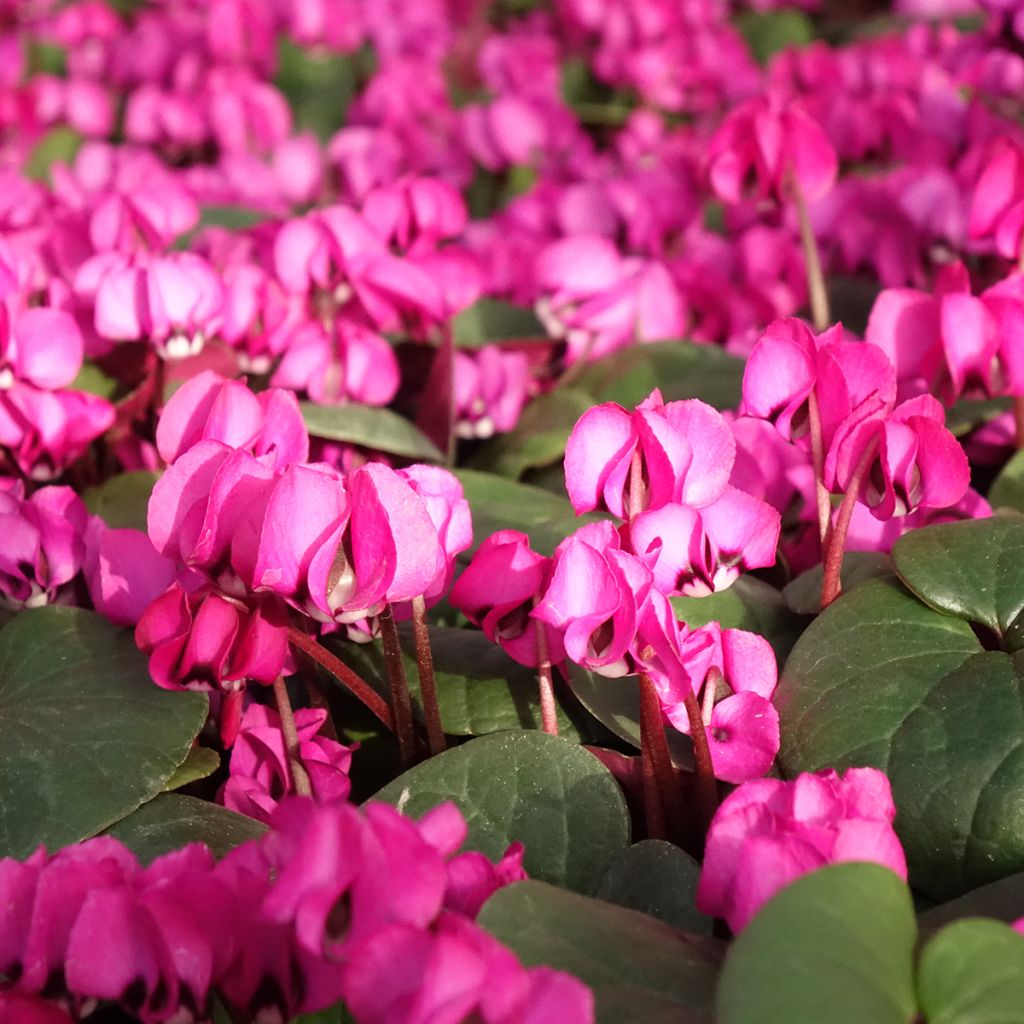

Fuschia-flowered Cyclamen coum - Eastern sowbread
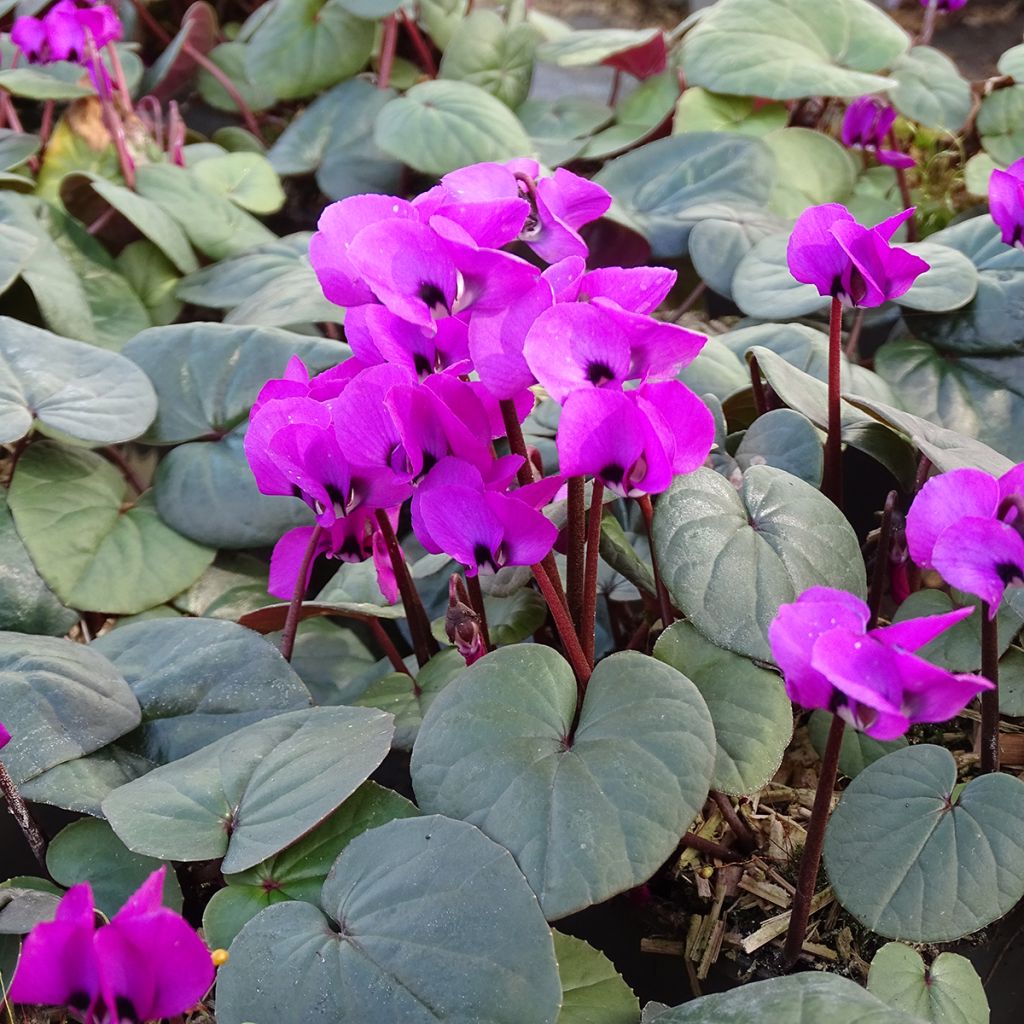

Fuschia-flowered Cyclamen coum - Eastern sowbread
Fuschia-flowered Cyclamen coum - Eastern sowbread
Cyclamen coum Fuschia feuillage vert
Eastern sowbread, round-leaved cyclamen
Special offer!
Receive a €20 voucher for any order over €90 (excluding delivery costs, credit notes, and plastic-free options)!
1- Add your favorite plants to your cart.
2- Once you have reached €90, confirm your order (you can even choose the delivery date!).
3- As soon as your order is shipped, you will receive an email containing your voucher code, valid for 3 months (90 days).
Your voucher is unique and can only be used once, for any order with a minimum value of €20, excluding delivery costs.
Can be combined with other current offers, non-divisible and non-refundable.
Why not try an alternative variety in stock?
View all →This plant carries a 12 months recovery warranty
More information
We guarantee the quality of our plants for a full growing cycle, and will replace at our expense any plant that fails to recover under normal climatic and planting conditions.
Would this plant suit my garden?
Set up your Plantfit profile →
Description
A selection of Cyclamen Coum with fuchsia pink flowers and green foliage, without marbling. It comes from the Cyclamen from the island of Cos, one of the most resistant and easy to grow species. This small form creates flowered carpets in winter. Its beautiful small round foliage, dark green, appears in autumn and persists until the end of spring and then disappears in summer. Install it in partial shade or shade under trees, along a path, in a shaded rockery. Over the years, it will form an elegant and low-maintenance carpet.
Cyclamen Coum is a perennial plant with tuberized roots belonging to the Primulaceae family. The species is not native to the island of Cos, Greece, but rather to the mountains of Bulgaria, Turkey, and Lebanon, corresponding to the region of Eastern Cilicia, where it is generally found in shaded areas. This small species measures about 10 cm in height.
Cyclamen Coum has given rise to numerous forms, with varied flowers and foliage, including this lovely fuchsia variety with green foliage. Some producers have made it a specialty, notably Kwekerij Koen, which works on an artisanal scale. Their nursery is located in Westland, Netherlands, an area of intense horticultural production. Kwekerij is passionate about hybridising botanical cyclamens: Cyclamen Coum, C. hederifolium, and C. purpurascens. They perform pollination on the parental lines with a brush, then collect the seeds, sow them, and then transplant them into pots.
The tubers of Cyclamen Coum are rounded and compressed, measuring up to 6.5 cm in diameter and are covered with a smooth and velvety "skin" and equipped with roots coming from their centre and base. The foliage generally develops in autumn, after a dry summer. In cool and humid climates, it may sometimes only appear at the same time as the flowers, in January-February. The leaves, rounded, measure 4 to 5 cm in diameter. In the variety presented here, they are a solid dark green. Their undersides are coloured purple-pink. As soon as the soil dries out a bit, in June, the foliage disappears and the plant goes into dormancy. This variety survives our normal winters, but a layer of dead leaves will be beneficial in case of prolonged frost.
The flowering of the fuchsia Cyclamen Coum with green foliage takes place between early February and mid-March, depending on the climate. The pointed flower buds, initially lying on the ground, stand upright on reddish peduncles. Each flower, quite stout, measuring 1 to 2 cm long, is composed of 5 fuchsia pink petals with rounded edges, curved backward. After pollination, the flower gives way to a small round fruit, with the floral stem spiraling to allow the fruit to come into contact with the ground. Ants, which feast on their sweet flesh, disperse the seeds.
Plant Cyclamen Coum by mixing the varieties, in a carpet-like arrangement. They will multiply on their own over the years, creating unforgettable scenes in the somewhat shaded and dry areas of the garden, which are difficult to design. The cyclamen is a perfect plant to enhance the base of a deciduous tree in an understory soil, with hellebores for example. Resistant to cold, its tuber fears excessive moisture, both in winter and summer, and it does not tolerate complete drying out in summer. It will find its place in a partially shaded rockery, not too dry, in the company of anemones blanda 'Blue Shades' for example. To have two flowering periods, plant Cyclamen cilicicum and Cyclamen 'de Naples', for autumn flowering.
Report an error about the product description
Flowering
Foliage
Plant habit
Botanical data
Cyclamen
coum
Fuschia feuillage vert
Primulaceae
Eastern sowbread, round-leaved cyclamen
Cyclamen hybrid Coum
Cultivar or hybrid
Other Cyclamen
View all →Planting and care
The corky tubercle of the fuchsia Cyclamen Coum with green foliage should be planted 2 cm deep (the top of the tubercle should be 2 cm below the surface of the soil) in a well-drained soil, even if it is limestone and rocky. Plant your cyclamens in partial shade, in light, worked soil. You can plant them in groups of 3 or 5. Cyclamen coum appreciate slightly limestone soils, dry in summer but not excessively, which corresponds to their resting period, and they dislike heavy and/or waterlogged soils in winter. They are excellent plants for rather dry undergrowth and shaded rockeries. They can also be planted in the short grass meadow. They multiply on their own with the help of ants that disperse the seeds. Depending on the climate, it can take them 6 months to return to their natural organic cycle.
Planting period
Intended location
Care
This item has not been reviewed yet - be the first to leave a review about it.
Haven't found what you were looking for?
Hardiness is the lowest winter temperature a plant can endure without suffering serious damage or even dying. However, hardiness is affected by location (a sheltered area, such as a patio), protection (winter cover) and soil type (hardiness is improved by well-drained soil).

Photo Sharing Terms & Conditions
In order to encourage gardeners to interact and share their experiences, Promesse de fleurs offers various media enabling content to be uploaded onto its Site - in particular via the ‘Photo sharing’ module.
The User agrees to refrain from:
- Posting any content that is illegal, prejudicial, insulting, racist, inciteful to hatred, revisionist, contrary to public decency, that infringes on privacy or on the privacy rights of third parties, in particular the publicity rights of persons and goods, intellectual property rights, or the right to privacy.
- Submitting content on behalf of a third party;
- Impersonate the identity of a third party and/or publish any personal information about a third party;
In general, the User undertakes to refrain from any unethical behaviour.
All Content (in particular text, comments, files, images, photos, videos, creative works, etc.), which may be subject to property or intellectual property rights, image or other private rights, shall remain the property of the User, subject to the limited rights granted by the terms of the licence granted by Promesse de fleurs as stated below. Users are at liberty to publish or not to publish such Content on the Site, notably via the ‘Photo Sharing’ facility, and accept that this Content shall be made public and freely accessible, notably on the Internet.
Users further acknowledge, undertake to have ,and guarantee that they hold all necessary rights and permissions to publish such material on the Site, in particular with regard to the legislation in force pertaining to any privacy, property, intellectual property, image, or contractual rights, or rights of any other nature. By publishing such Content on the Site, Users acknowledge accepting full liability as publishers of the Content within the meaning of the law, and grant Promesse de fleurs, free of charge, an inclusive, worldwide licence for the said Content for the entire duration of its publication, including all reproduction, representation, up/downloading, displaying, performing, transmission, and storage rights.
Users also grant permission for their name to be linked to the Content and accept that this link may not always be made available.
By engaging in posting material, Users consent to their Content becoming automatically accessible on the Internet, in particular on other sites and/or blogs and/or web pages of the Promesse de fleurs site, including in particular social pages and the Promesse de fleurs catalogue.
Users may secure the removal of entrusted content free of charge by issuing a simple request via our contact form.
The flowering period indicated on our website applies to countries and regions located in USDA zone 8 (France, the United Kingdom, Ireland, the Netherlands, etc.)
It will vary according to where you live:
- In zones 9 to 10 (Italy, Spain, Greece, etc.), flowering will occur about 2 to 4 weeks earlier.
- In zones 6 to 7 (Germany, Poland, Slovenia, and lower mountainous regions), flowering will be delayed by 2 to 3 weeks.
- In zone 5 (Central Europe, Scandinavia), blooming will be delayed by 3 to 5 weeks.
In temperate climates, pruning of spring-flowering shrubs (forsythia, spireas, etc.) should be done just after flowering.
Pruning of summer-flowering shrubs (Indian Lilac, Perovskia, etc.) can be done in winter or spring.
In cold regions as well as with frost-sensitive plants, avoid pruning too early when severe frosts may still occur.
The planting period indicated on our website applies to countries and regions located in USDA zone 8 (France, United Kingdom, Ireland, Netherlands).
It will vary according to where you live:
- In Mediterranean zones (Marseille, Madrid, Milan, etc.), autumn and winter are the best planting periods.
- In continental zones (Strasbourg, Munich, Vienna, etc.), delay planting by 2 to 3 weeks in spring and bring it forward by 2 to 4 weeks in autumn.
- In mountainous regions (the Alps, Pyrenees, Carpathians, etc.), it is best to plant in late spring (May-June) or late summer (August-September).
The harvesting period indicated on our website applies to countries and regions in USDA zone 8 (France, England, Ireland, the Netherlands).
In colder areas (Scandinavia, Poland, Austria...) fruit and vegetable harvests are likely to be delayed by 3-4 weeks.
In warmer areas (Italy, Spain, Greece, etc.), harvesting will probably take place earlier, depending on weather conditions.
The sowing periods indicated on our website apply to countries and regions within USDA Zone 8 (France, UK, Ireland, Netherlands).
In colder areas (Scandinavia, Poland, Austria...), delay any outdoor sowing by 3-4 weeks, or sow under glass.
In warmer climes (Italy, Spain, Greece, etc.), bring outdoor sowing forward by a few weeks.






























